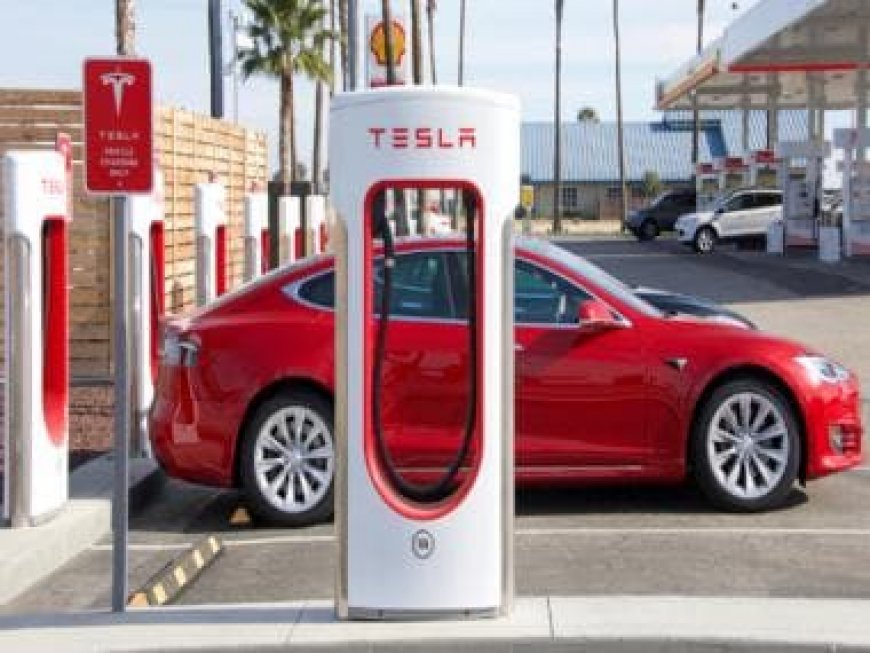Tesla is secretly winning the war to standardise EV charging, to make big bucks off of other EV makers
Tesla is secretly winning the war to standardise EV charging, to make big bucks off of other EV makers

Say what you will about Elon Musk, but apart from being one of the craziest innovators, he is also a very astute businessman. If Musk’s latest gambit plays out the way he plans, he will have set a common standard for tall EVs and how they connect to their chargers.
After years of anticipation, hoping that he would be recognised as one of the crucial automobile mogul in the world. Tesla’s billionaire CEO finally received the recognition he had been waiting for. The major American automobile manufacturers now acknowledge that Tesla has taken the central position and has emerged as the leader in the automotive industry.
How Tesla came to dominate EVs – Despite Ford and GM
Ford and General Motors, the two key players among Detroit’s Big Three, initially believed they could maintain their dominance despite Tesla’s remarkable market value. However, with Tesla clearly indicating a shift in power, the two traditional carmakers have finally acknowledged that the disruptor has become the industry standard after two decades in the electric vehicle manufacturing business.
This acknowledgement materialized through two unprecedented agreements. Starting in 2024, customers of the two legacy carmakers will have the ability to recharge their electric vehicle batteries using Tesla’s supercharger network. With approximately 17,000 stations across the United States, Tesla boasts the largest charging station network in the country. However, GM and Ford customers will only have access to 12,000 superchargers.
Superchargers can add up to 200 miles of range in just 15 minutes. Since charging above 80 per cent is rarely necessary, stops are typically short and convenient,” Tesla says in its website.
In light of this development, Ford and GM have agreed to adopt Tesla’s charging connector, which serves as the link between the electric vehicle and the charging station. To facilitate this transition, owners of these two Michigan giants will only need to purchase an adapter, costing approximately $100.
This marks a significant victory for Tesla and Musk, as it not only opens up a new revenue stream but also positions Tesla’s EV charging plug as the industry standard. Presently, there are two charging standards in North America: Tesla’s North American Charging Standard (NACS) and the Combined Charging System (CCS), which employs a slower-charging connector and is used by other car manufacturers.
The public charging network, which currently encompasses 54,000 locations according to the Energy Department, utilizes the CCS connector. However, one drawback of the public charging network is the limited availability of fast chargers capable of rapidly recharging batteries. In total, there are 7,400 public station superchargers that use the CCS standard.
Musk invites Toyota to join the likes of Ford & GM
Apart from Ford and GM, no other automaker has joined forces with Tesla and Musk. However, the billionaire entrepreneur has taken the initiative by inviting Toyota to join Tesla’s new coalition. This invitation was extended through Twitter, following a user’s mention of an article highlighting the challenges of battery charging while taking a trip in Toyota’s new all-electric SUV.
On June 14, Sawyer Merritt, a self-proclaimed Tesla investor and fan, shared on Twitter their experience of driving the new Toyota bZ4X EV from New York to Washington DC and back. According to Merritt, the nine-hour journey involved three hours of charging. Even when the bZ4X’s battery was at a 37% charge, it refused to accept a charging speed greater than 35 kW.
Merritt further added that a Tesla Model Y would only require a total charging time of around 30 minutes for the entire trip, along with a link to the article providing more details on the matter.
Musk’s offer coincides with the recent announcement by the Japanese automaker of their accelerated development of electric vehicles featuring a battery range of 600 miles (1,000 km), surpassing Tesla’s current offerings.
If the Japanese group decides to accept Tesla’s offer, it is likely to encourage other automakers such as Kia, Hyundai, and Stellantis to follow suit in order to avoid being at a competitive disadvantage.
Volkswagen, the outlier
Currently, Volkswagen is one of the few automakers that have expressed their commitment to the CCS charger. The German giant is constructing its own charging network, which currently comprises 840 charging stations, a number expected to double by 2026.
The charging network plays a crucial role in the advancement of electric vehicles. An automaker that can offer long-lasting batteries, enabling drivers to cover substantial distances on a single charge, while also providing a vast network of charging stations and fast charging capabilities, holds a significant advantage. This is one of Tesla’s strengths, which currently dominates the market.
By opening up its network to competitors, Tesla is willing to dilute its own advantage. However, in doing so, it gains a substantial source of income and solidifies its position as the leader, as its connector becomes the industry standard.
Read all the Latest News, Trending News, Cricket News, Bollywood News,
India News and Entertainment News here. Follow us on Facebook, Twitter and Instagram.
What's Your Reaction?



























































